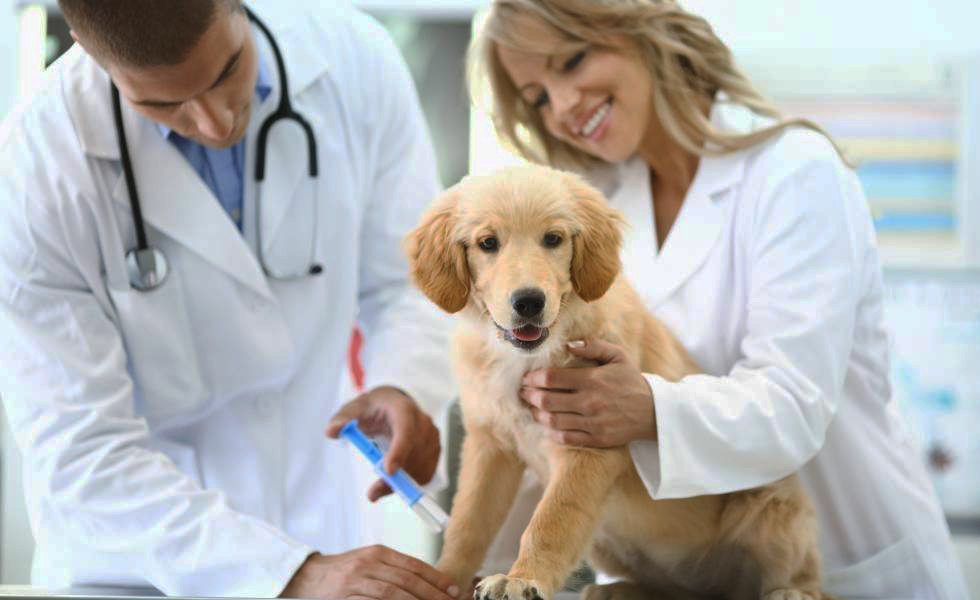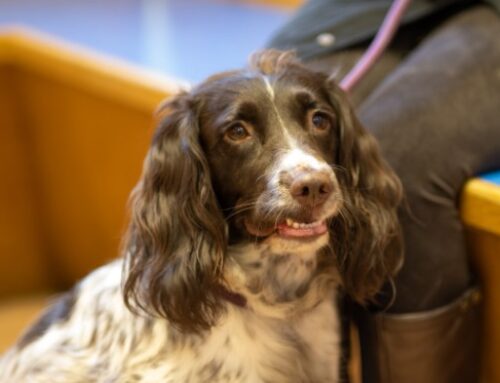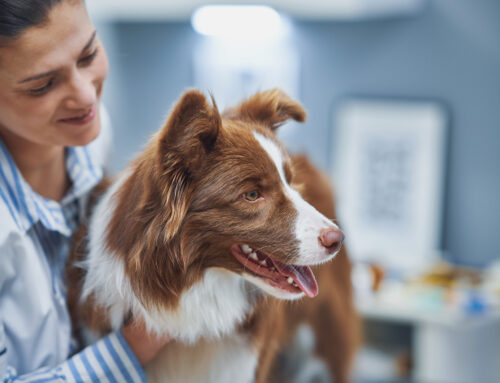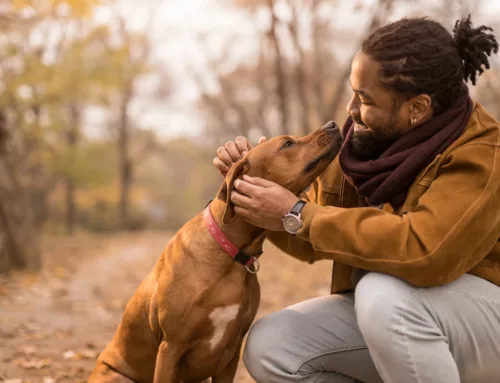Ensuring that your puppy is fully vaccinated is an important first step for your new dog with later booster vaccinations also of key importance to your dog’s health. Vaccinations are used to protect your dogs from common diseases and reduce the likelihood of these diseases spreading to other dogs. Discussing your dog’s vaccination history with a vet can be a useful step in finding out whether your pet is fully vaccinated and determining when the next vaccination appointment should be booked in.
If the vaccination status of your dog is unknown, for example, if your dog is a stray, then it is recommended that your dog receives a full course of vaccinations. An unvaccinated puppy will need to remain inside and not come into contact with unvaccinated dogs so it is important to get your puppy’s vaccinations booked in to keep your pet happy and healthy. Vaccinations reduce the likelihood of your dog getting diseases they are vaccinated against and will reduce the risk of serious symptoms if your dog does catch one of these diseases.
Read more for some further information about core vaccinations for your puppy and information on when puppies typically receive their first vaccinations.
Puppy Vaccinations
Core vaccinations for your dog protect against diseases including Canine Parvovirus, Canine Adenovirus, Canine Distemper, Leptospirosis and infectious Hepatitis. If you plan to travel with your dog outside of the UK, your dog will also need to get a vaccination against Rabies. If your dog is likely to frequently come into contact with other dogs your vet will likely recommend that your dog receives a vaccination against kennel cough.
The cost of vaccination courses varies depending on the practice and which vaccinations are given. Costs can be discussed with your vet when you are booking vaccinations for your dog.
Common diseases
The core vaccinations that your puppy will receive cover common diseases which can be serious if your pet is exposed to them unvaccinated. Canine Parvovirus is transmitted through either contact with an infected dog or with an object which has been contaminated by the virus. Canine Distemper is another serious contagious virus with symptoms including fever, difficulty breathing and eye and nasal discharge. Leptospirosis is a bacterial disease which causes damage to the liver and kidneys.
Puppies can be protected from these illnesses by receiving vaccinations, reducing the risk of infection and transmission and reducing the severity of symptoms.
How do vaccinations work?
Vaccinations trigger an immune response which provides increased immunity to the relevant disease. Over time a booster vaccine will be necessary after immunity has decreased to ensure that antibodies are present.
When should puppies get vaccinated?
Puppies typically begin their primary course of vaccinations when they are between 8 and 10 weeks old although in some instances the primary course of vaccinations begins a couple of weeks earlier. The second set of vaccinations is typically then provided 4 weeks after the primary course at 12 weeks old. Once a puppy is fully vaccinated, boosters will typically be booked in between one month and a year following this.
Vaccination appointments
In addition to providing a course of vaccinations, a vaccination appointment will entail your vet checking that your dog is fit and healthy. There will then be the opportunity to discuss the vaccinations that will be provided and how often boosters will be required depending on the vaccine. This will also provide the opportunity to ask any questions you may have about the vaccinations required. Typically it will take around five to ten days for a vaccine to become effective.
This appointment can also provide an opportunity to ask your pet questions about neutering and flea treatment. This opportunity to ask your vet about any concerns you may be having with your new puppy can provide peace of mind and assurance that help is on hand should any health-related concerns arise in the future.
Kennel cough
Kennel cough refers to a range of infectious conditions where a dog’s respiratory system is affected. This is most commonly contracted in areas where a dog is likely to come into contact with many other dogs. If your dog is going to be spending time with a dog walker, in doggy daycare or you are planning to attend dog events and shows then it is likely that your vet will recommend that your dog receives a vaccination against kennel cough.
Travelling outside the UK
Whilst this is not required if you will be remaining with your dog within the UK, if you travel outside the UK with your pet then it is legally required that they first receive vaccination against rabies. Other requirements to travel outside the UK with your dog include that your dog is microchipped and has had an Animal Health Certificate provided no more than ten days before you travel. There may be diseases your dog is exposed to in travelling that are not commonplace in the UK so it is important to research if this is the case. It is important to consider that vaccines can take a couple of weeks to become effective so any necessary vaccinations will need to be planned significantly in advance.
Titre testing
Titre testing is used to analyse your dog’s antibodies to specific illnesses. If a dog’s vaccination history is not known then this can provide one way of determining which vaccinations may have been administered. The length of time a vaccine will remain effective varies between different dogs. There is also variation, depending on the disease, in how long different vaccinations will be effective. Whereas leptospirosis, for example, typically requires yearly booster vaccinations some diseases require vaccines more infrequently. A titre test can help to determine whether antibodies are present and whether another vaccination is required.
Where can you find your pet’s vaccination history?
After your puppy receives their first vaccination your vet will provide you with a vaccination record which will be used to track your vet’s vaccination history and determine when new vaccinations and booster vaccinations are required. The amount of time between booster vaccinations will vary depending on the disease.
Establishing a routine is important for a puppy’s development and ensuring that your puppy is receiving vaccinations as recommended can help make sure that as a puppy gets older it can be taken on regular walks.
Registering your puppy with a vet
Registering your puppy with a veterinary practice and booking them in for their first vaccination can provide peace of mind that healthcare options are available for your pet if required. Finding an accredited vet locally who can offer emergency care is a good idea. Taking your pet to a vet for health checks also provides the opportunity to monitor your dog’s health and development. A vet surgery will also be able to provide more significant surgical interventions if necessary.
Asking friends and family for recommendations can be a useful starting point in finding a vet. Additionally, looking at the services offered by a vet and checking whether out of hours care is available can be useful in making this decision. If a vet can offer a wide range of treatment options this can provide peace of mind that for the majority of healthcare requirements that could arise you will be able to take your pet to a familiar and comfortable location.
Book your puppy’s vaccination with Bay Vets
With practices in Lancaster, Morecambe, Milnthorpe and Caton, Bay Vets offers tailored healthcare to pets across Lancashire and South Cumbria. With out-of-hours cover available, Bay Vets offers emergency veterinary care in addition to more routine appointments to ensure that your pet is healthy. Our practices provide a safe and comfortable setting for general health checks and are fully equipped for our experienced staff to conduct major surgical procedures if necessary.
Getting your puppy booked in for their first vaccination appointment ensures that they are receiving protection from core diseases your pet might be exposed to. Additionally, registering your puppy with your local vets ensures that help is available if your dog requires healthcare. To speak to our friendly and professional team about booking your puppy’s vaccinations, call 0152432696 or email info@bayvets.co.uk and one of our team will get back to you.





